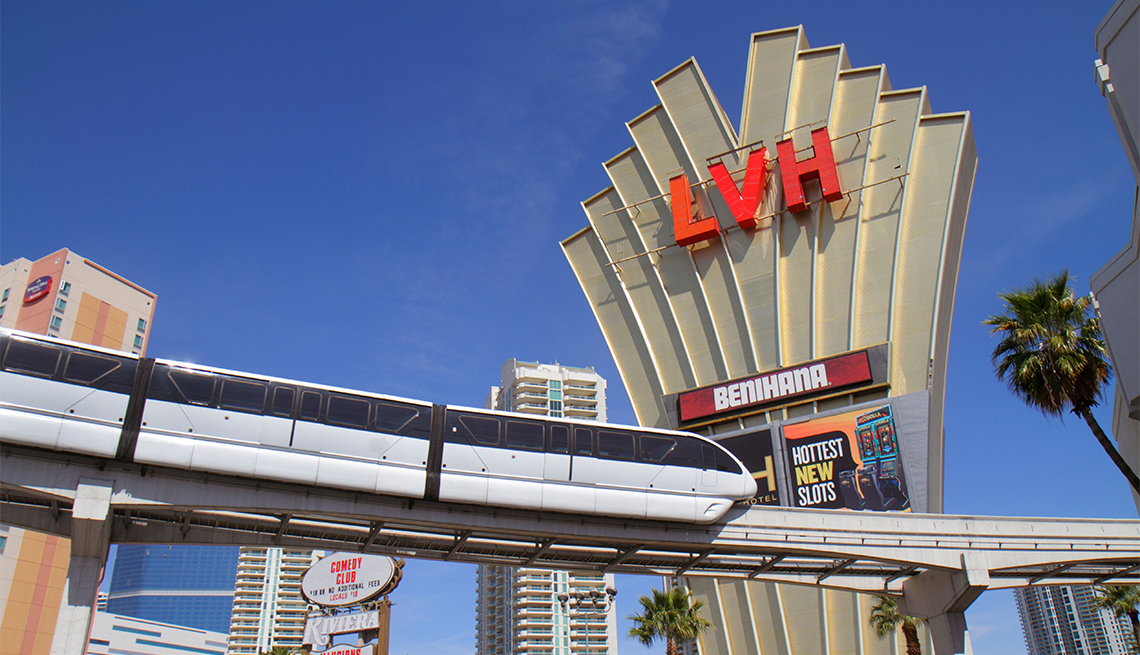
Getting around las vegas: buses, taxis & accessibility
- Select a language for the TTS:
- UK English Female
- UK English Male
- US English Female
- US English Male
- Australian Female
- Australian Male
- Language selected: (auto detect) - EN
Play all audios:

Just walking from one Strip casino to its neighbor can take 15 minutes. The most heavily traveled part of this four-mile stretch has wide sidewalks and elevators to pedestrian bridges that
cross Las Vegas Boulevard. The city strives to abide by the federal 1990 ADA law, with curb cuts and accessible restrooms. Use walkways or free wheelchair-accessible trams that run between
some resorts on the Strip’s west side, or ride the Las Vegas Monorail. It serves more than a half-dozen properties on the east side, including MGM Grand, Paris, Bally’s and Caesars Palace,
and is also wheelchair accessible; riders can buy day or multiday passes. If you can’t walk long distances, you can rent an electric scooter at some casino resorts. BUSES To traverse the
Strip or go downtown, board the double-decker Deuce bus. It’s wheelchair accessible and has rates for those 60 and over. (You must get your reduced-fare transit ID card at the Bonneville
Transit Center.) The free Downtown Loop bus goes to the Fremont Street Experience, the Arts District, Symphony Park, Pawn Plaza and outlet stores. TAXIS/RIDE SHARING Taxis sit outside
hotels; those outfitted for wheelchairs can be ordered by phone. Ride-hailing vehicles now far outnumber cabs. It’s unusual to wait more than five minutes for an Uber or Lyft in tourist
areas. They typically cost half what a taxi would, and sometimes even less. ACCESSIBILITY Vegas rolls out the welcome mat for those using walkers or wheelchairs. The most heavily traveled
part of the four-mile Strip has wide sidewalks and elevators to pedestrian bridges that cross Las Vegas Boulevard.
